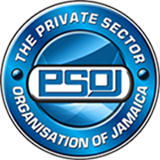The relationship between crime and the economy in Jamaica has been well established. Jamaica is in the throes of a crisis of public safety evident in the extraordinarily high murder rate and the high rate of violent crimes. At the heart of the issue are troubling social processes that have culminated in what has been described as a culture of violence . In 2005, the country returned a murder rate of 63 incidents per 100,000 citizens. This places Jamaica at the top of the ranking as the most murderous country in the world. Crime and more particularly, violent crime, directly retards economic growth. In addition, Jamaica’s high rate of violent crime which has its roots in the low levels of confidence in the police and court system, heightens transaction costs and thereby diminishes economic activity. In a survey undertaken by the Caribbean Policy Research Institute (CaPRI) in September 2006, on perceptions of corruption in the public sector, sixty-two percent of respondents believed the public sector to be corrupt.
The common view is that crime is out of control. In the 2005 report of the Task Force commissioned by the then Leader of the Opposition to examine and make recommendations on how crime and violence should best be tacked, it was noted that “every day the “average” urban citizen witnesses a number of incidents of law violations and public disorder that go unchallenged by the authorities and their fellow citizens. These may occur in very public places such as the transport centres and markets where extortionists ply their trade, “taxing” taxi operators, higglers and store owners; in schools where children may violently attack their fellow students with near impunity; and in some communities where young men are able to openly parade with their illegal guns and to boast of “making duppies”. Moreover, from time to time the violence of the competing organized crime networks are able to shut down sections of the capital and other towns as has repeatedly been the case in Downtown Kingston and Spanish Town. Not surprisingly, national polls now show criminal violence to be the first concern among the Jamaican citizenry.
Tackling the situation requires a sense of urgency, focus and seriousness of purpose. Crime, especially violent crime, presents a challenge to leadership at the level of the political administration, the criminal justice administration, and other key institutions such as the schools, as well as the community and civil society in general. A broad consensus based on unity of purpose, agreement on the values that should inform the responses of the state, the priorities, the funding of these priorities and the willingness to make the associated sacrifices is needed (and may even be a precondition for an effective and sustainable programme of action).”
The PSOJ is committed to playing its part in supporting the state, and more particularly, the security forces in addressing the crime problem which is a not only a threat to the business community, but to society as a whole.
Terms of Reference of the Committee:
a. To assist in the maintenance of the equipment of the security forces.
b. To assist in strengthening the education and training of the security forces.
c. To assist in ensuring proper organisation of the security forces.
d. To assist in the area of police/community relations.
e. To assist with any other request that the Commissioner of Police/Chief of Staff may make from time to time.
Members of the Committee:
Lt. Commander George Overton – Chairman
Ms. Makeba Bennett-Easy – PSOJ
Mr. Howard Mitchell – PSOJ
Maj. Gen. (Ret’d) Antony Anderson – Commissioner of Police
ACP Selvin Haye – JCF
Lt. Col. Mahatma Williams – JDF
Mr. Peter John Thwaites – Individual
Mr. Ferris Ziadie – Ferris Ziadie Ltd.
Maj. Gen. (Ret’d) Robert Neish – Crime Stop
Mrs. Michele Alexander-Lemmon – Ministry of National Security
Mr. David Silvera – Individual
Mr. Micheal Bernard – Shipping Services Stevedoring
Mr. Mark Shields – Shields Crime and Security Consultants Ltd
Mrs. Sandra Glasgow – Crime Stop
Mrs. Prudence Gentles – Crime Stop
Ms. Kalista Powell – Jamaica Customs Agency
Mrs. Maria Williams – Love – GK Foods & Corporate
Supt. Merrick Watson – Port Authority of Jamaica
Capt Paul Beswick – Jamaican Bar Association
Ms. Althea McBean – JRIU
Ms. Terri Anderson – PSOJ
